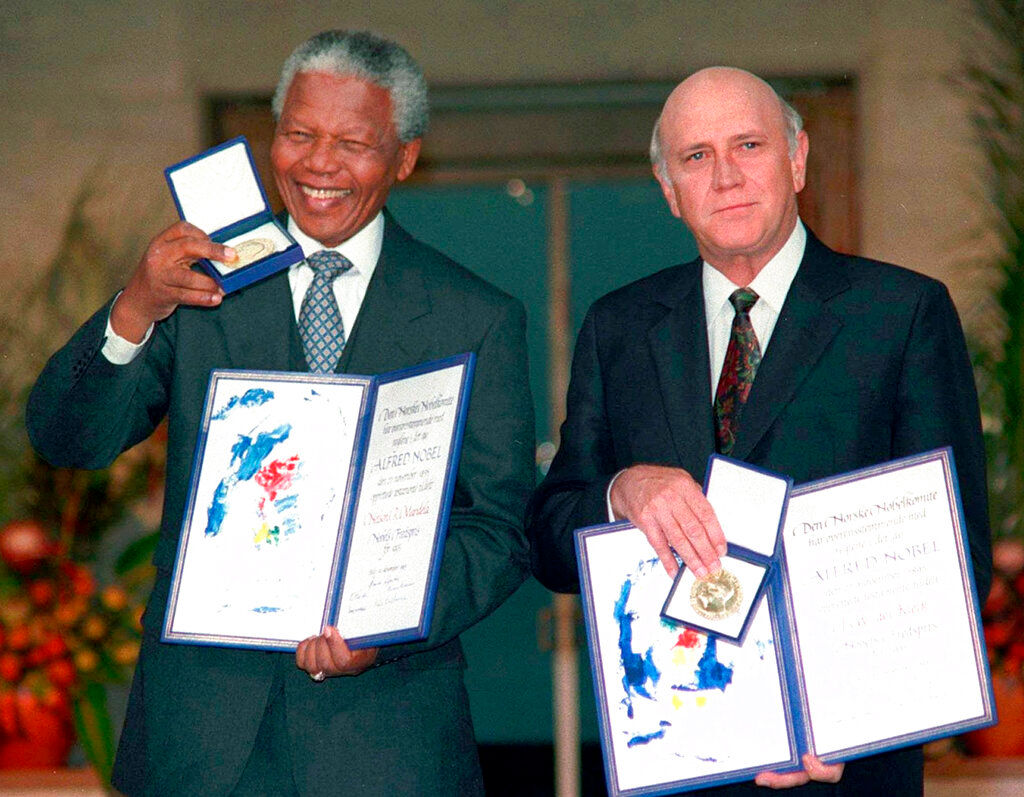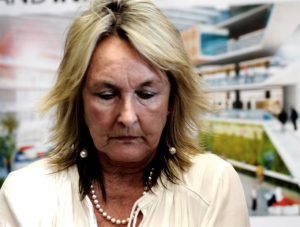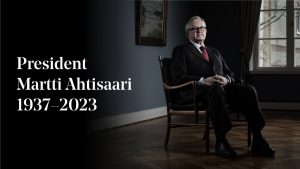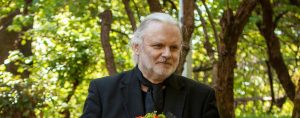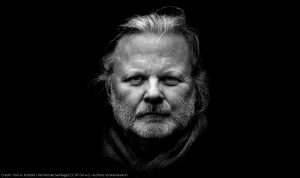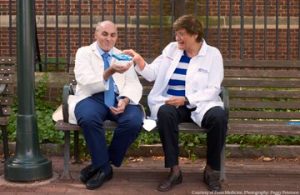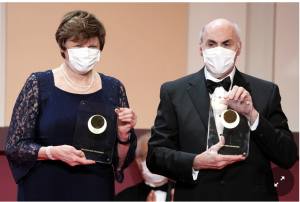FW de Klerk, who announced the release of Nelson Mandela as South Africa‘s last apartheid president, has died at the age of 85. De Klerk was diagnosed with cancer this year. He served as head of state between September 1989 to May 1994, playing a key role in the nation’s transition to democracy. De Klerk died at his home in the Fresnaye area of Cape Town after battling against mesothelioma cancer, a spokesman for the FW de Klerk Foundation said in a statement on Thursday.
He is survived by wife Elita, children Jan and Susan, and his grandchildren, the statement added. It was during de Klerk’s tenure that anti-apartheid leader Mandela was released from prison after 27 years, nine days after the then president announced the decision in a speech to South Africa’s parliament on February 2, 1990.
Nelson Mandela Day: Lesser known facts about the Madiba of South Africa
De Klerk and Mandela were jointly awarded the Nobel Peace Prize in 1993 for their “work for the peaceful termination of the apartheid regime, and for laying the foundations for a new democratic South Africa.”
Nelson Mandela’s tailor on mission to boost African fashion
De Klerk, who had been elected president just five months earlier, also announced the lifting of the ban on the African National Congress and other anti-apartheid political groups, drawing gasps from several members of parliament members who left the chamber as he spoke.
In 1994, Mandela was elected South Africa’s first black president in a historic election that allowed non-whites to cast their vote for the first time, and is now celebrated as Freedom Day every year on April 27.
Mandela Day: Celebrating the life of South Africa’s first Black President
Last year, de Klerk caused outrage by refusing to condemn apartheid as a crime against humanity during an interview with the state-run South Africa Broadcasting Corporation.
The FW de Klerk Foundation supported his remarks, saying “Deplorable as it is, we cannot, from a legal point of view, accept that apartheid can in this manner be made a crime against humanity.”
South African President Cyril Ramaphosa called the comments that de Klerk retracted later, as “treasonous.”

